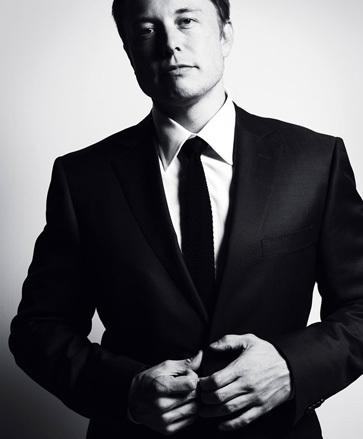Why Elon Musk is the exception rather than the rule
 Judging by the successes of Ilon Mask in various industries, including PayPal, Tesla Motors and SpaceX, you might think that the transition between technologies that are so different as digital payment technologies, innovative automotive industry and space is quite smooth and easy.
Judging by the successes of Ilon Mask in various industries, including PayPal, Tesla Motors and SpaceX, you might think that the transition between technologies that are so different as digital payment technologies, innovative automotive industry and space is quite smooth and easy. A study by Professor Eggers (JP Eggers) suggests that Musk, like other extremely gifted entrepreneurs such as Richard Branson, are rare exceptions to the rule.
According to Eggers, failure, of course, is much worse than permanent success, but it can bring much more valuable lessons. It turns out that for many, it is probably better to stick to one industry, even if failure first occurs, than to start all over again in a different role.
Such a statement runs counter to the popular entrepreneurial myth of accepting risks and stubborn attempts to succeed, regardless of industry.
“Every time you change the nature of an activity, you lose valuable experience of failure, which includes an understanding of the causes of failure and the industry itself.”
Eggers, and co-author Lin Song of Central Beijing University of Finance and Economics, studied two groups of entrepreneurs in Beijing and venture capitalists in the United States. As a result, they found that entrepreneurs who failed and remained in the same business, at least, improved results in the following iterations, unlike many who changed the nature of the activity.
One reason for this is that failed entrepreneurs tend to blame external circumstances, whether they are competitors, changes in market conditions, high prices and expectations, and not internal factors such as disgusting management or team disagreements.
When your things are going well, there is a tendency to overestimate self-esteem, and when everything is bad, someone else is always to blame.
Initially, the study was designed to identify differences in the entrepreneurial cultures of the United States and China. One such difference is the desire of American entrepreneurs to work in a team, and, conversely, the great tendency of their Chinese colleagues to solo performances. As a result, the former can gain more experience in the business as a whole, at the expense of the team, while the latter always rely on experience of only one person. At the exit, the researchers found a strange feature, entrepreneurs remaining in the same industry, in fact, found themselves in a more advantageous situation.
Entrepreneurs like Musk and Branson seem to have the ability of King Midas to turn any item into gold. Whatever business they are engaged in, they usually succeed, which is relevant only to their exceptional leadership qualities and brilliant ideas.
In the study, the authors examine two data sets: an extensive survey of entrepreneurs in China and venture capital investments in the United States.
Additional key data includes the fact that almost 46% of all serial Chinese entrepreneurs in the surveyed sample changed the nature of their activities before starting a subsequent venture. In the USA, this value is even higher, and reaches 54%.
Some points of the study are difficult to prove. For example, only 27% of Chinese entrepreneurs who founded the previous enterprise still remained in the same field.
In any case, a change in the type of activity, regardless of the success of the previous one, negatively affects the subsequent enterprise. The results showed that 23 to 31 percent of enterprises showed lower growth in Chinese data and 18 percent according to the United States.
Researchers conclude that entrepreneurs should think twice before changing their field of activity, and also warn potential investors about the caution of investing in serial entrepreneurs switching from one industry to another, because previous failures could well be related to managerial weaknesses or failed strategic planning.
